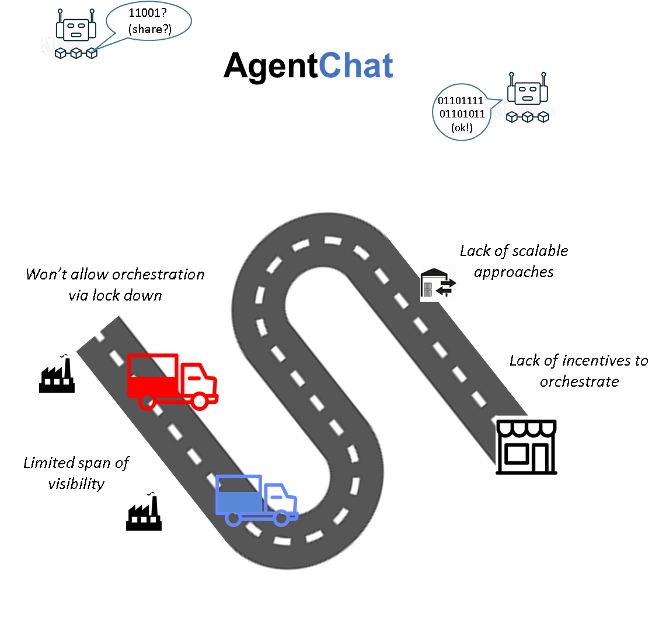
Freight co-loading addresses the problem of increasing the utility of freight capacity by including shipments from multiple shippers onto the same freight to travel between close shipment locations. Potential benefits of freight co-loading include reduced carbon, cost of shipment and congestion at receiving locations. Yet, in the UK and Europe, only 63% of journeys carry a useful load and average vehicle utilisation is under 60%. Although the idea of freight co-loading is not new, it has never been fully implemented. Freight co-loading is a hard problem because:
- Co-located or close suppliers do not know whether they are sending items to similar locations at similar times. For them to know, someone needs to tell them.
- For retailers, orchestrating co-loading involves transaction costs. The benefits of truck co-loading do not necessarily outweigh the costs of paying for manual orchestration.
- For logistics providers to be the orchestrator, suppliers would need to use the same logistics providers, creating a lockdown effect, not suitable for sporadic journeys.
- For a third-party mediator, suppliers need to pay, and they would only benefit if enough other suppliers sign up.
AgentChat will explore the feasibility of an alternative solution to address these issues. AgentChat involves two key aspects: a distributed, multi-agent software system that automates solution search and optimisation; and a learning algorithm to reduce solution search space over time.
For more details, click here.
Funded by: EPSRC Connected Everything
Researchers: Liming Xu, Stephen Mak, Stefan Schoepf
Industrial Partners: Value Chain Lab, Fetch.ai









